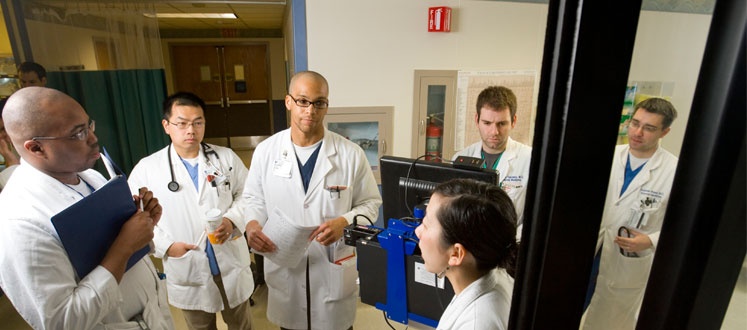Guiding Academic Medical Faculty Toward Their Aspirations
Like what you’re reading? Click here for more Academic Medicine Career Resources.
 By: Julie Ann Freischlag, MD, Vice Chancellor for Human Health Sciences and Dean of the School of Medicine at UC Davis
By: Julie Ann Freischlag, MD, Vice Chancellor for Human Health Sciences and Dean of the School of Medicine at UC Davis
Mentoring and elevating the next generation of faculty and physicians are two of the most important–and enjoyable–aspects of my career. Part of these efforts involves helping them find professional satisfaction and pursue their passions.
I appreciated the article in the August issue by Jones et al, entitled “A Mixed-Methods Investigation of the Motivations, Goals, and Aspirations of Male and Female Academic Medical Faculty,” because it sheds light on the desires faculty have around their careers, which impacts retention, recruitment, and institutional culture.
The study showed that work/life balance was very important for both women and men. (Is 95.5% of women really that different from 90.5% of men who indicated that balancing work and other activities was important, even though it is statistically different?) This finding mirrors the results of the 2015 UC Davis Faculty Forward Survey, which demonstrated that our young male faculty are struggling with work/life balance as much as our young women faculty. Our male faculty indicated that they too want to spend quality time with their families and that their partners are busy. In the past, I think that only half as many men as women would have responded this way. This may be a reflection of the significant increase over the last half century in the number of women in the workforce. Compared to when I was a young faculty member, today there are not as many male faculty who have stay-at-home partners, and many have partners who are faculty as well.
As for the study finding indicating that men place a higher value on salary than women, I think this is confirmation of what I’ve seen and experienced throughout my career. Perhaps it is based on the longstanding societal expectation and habit that men are the breadwinners.
I was pleased to see that 97.3% of all study participants placed a high value on the goal of conducting quality research. Said one female K-awardee, “I hope to really help patients with my research and really introduce new and innovative ideas or difficult-to-accept ideas into clinical practice that can really help change the quality of life for patients and their loved ones.” This mirrors my feelings, as one of my passions is conducting outcomes research on Thoracic Outlet Syndrome. There is nothing more satisfying than proving through research that the work you’ve committed your career to improves quality of life.
Finding your passion and honing your strengths are critical components of professional satisfaction in academic medicine. The study by Jones et al indicated that “lack of fit or low satisfaction” was cited by a number of participants as a reason for altering their career paths. I have asked our young UC Davis School of Medicine faculty to take the Gallup StrengthsFinder to discover their passion and what they do best. Many have said that their five revealed strengths ring true with their spirit and what they thought were their strengths. It has helped many understand where they should focus their efforts for greater happiness, balance, and job satisfaction.
I also think that finding your passion and setting aspirational goals should start long before one accepts a faculty position. Another personal passion is having high school and college students shadow me in the OR to spark their interest in surgery. Even through a surgical mask, I can see the light burning bright in the eyes of those who discover their passion while watching the surgical team perform a rib resection. That is magic, and it helps to keep my light burning bright!
The recent Mayo Clinic study on physician burnout is an excellent reminder to all of us that keeping that fire lit in our careers can go a long way in helping us stay focused, committed, and healthy. Academic leaders with their faculty should foster a culture of balance and pursuit of professional aspirations. The results of the Jones et al study reinforce this idea.
Like what you’re reading? Click here for more Academic Medicine Career Resources.
